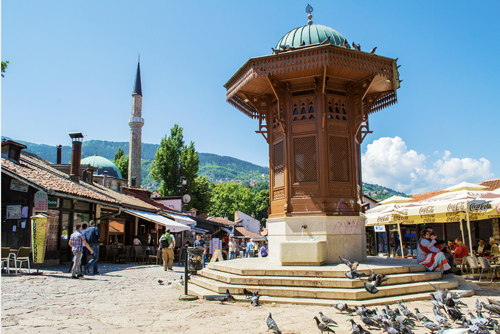
[HOME]
20200920
Excerpt
bit.ly/3mztyUGRiada Asimovic Akyol, January 13, 2019

Sarajevo, Bosnia’s capital
How Bosnian Muslims reacted to forced secularization.
The Islamic Community cites the “requirements of time” (in the words of Bosnia’s top Islamic legal scholar) as one of the principles animating its religious interpretations: Islamic thought can and should offer Muslims answers on how to practice Islam here and now. The result is that “the institutions are given an element of flexibility, while maintaining Islam’s timelessness.” The same institution today asserts its credibility to “serve as a constructive partner for other Muslim communities and EU institutions.”
…
Second, forced secularization—including bans on wearing face veils—can be counterproductive. As the testimonies of Muslim women from Yugoslavia revealed, such restrictions can produce deeply negative consequences, including insults and attacks against veiled women. Instead, Muslims’ own questioning of the religious foundations of the face veil can yield progressive interpretations that feel authentic because they’re coming from within the community. For instance, the Bosniak reformist leadership argued that Islam grants men and women rights and responsibilities, and unveiling is both true to Islam and can facilitate women’s access to fulfilling their given rights. Instead of legal bans or enforced dress codes, democratic Western governments would do better to promote Muslim women’s freedom of choice.
Finally, Islamic modernism, born in the 19th century as an effort to reinterpret Islam with a liberal spirit, is not as ineffective as some pessimistic commentators on Islam believe. In today’s Bosnia, Islam is internally diverse: Many Muslims see it as part of their cultural heritage, while others emphasize the importance of daily religious rituals.
Our modernist Islamic tradition is not immune to global trends, including Salafist currents. But Bosnia’s intellectual legacy offers plenty of evidence that Europe and Islam are far from incompatible—in fact, they have been intertwined for centuries.
Read more:
Bosnia Offers a Model of Liberal European Islam - The Atlantic
Δ CET -lmod: 20210111 20:32 (UTC=20:32 -1h)